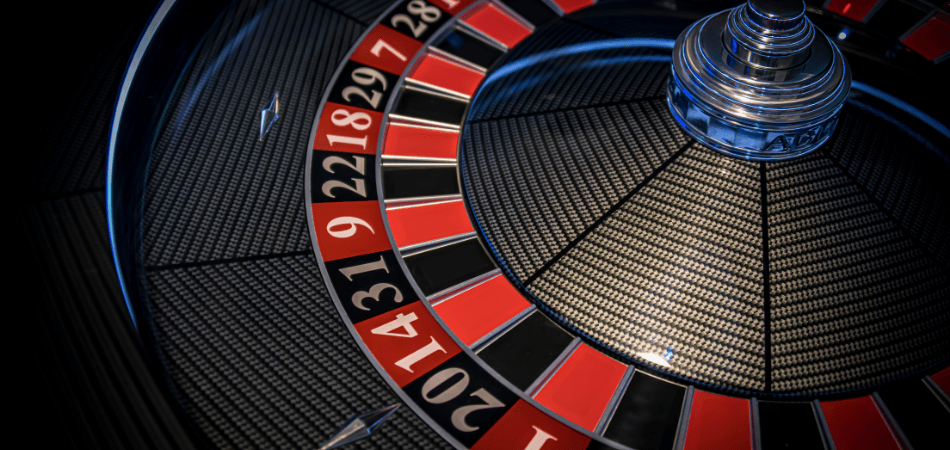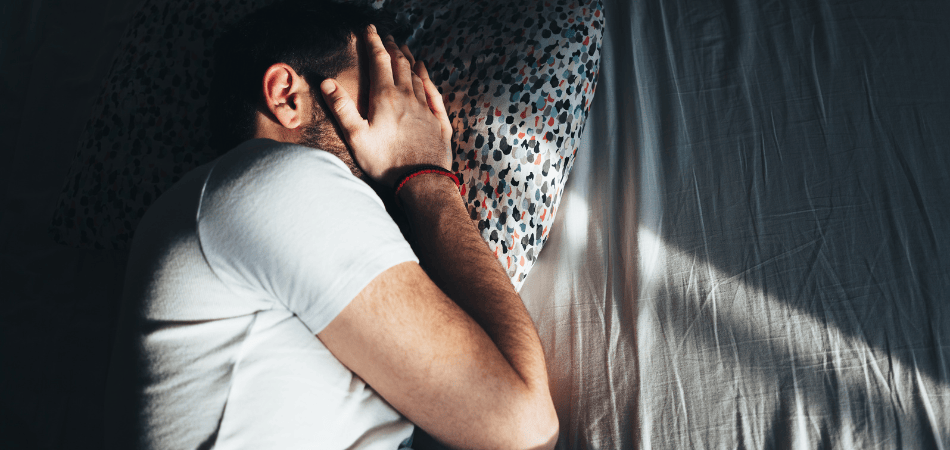
Written by:

Medically Reviewed by:
This Page was last reviewed and changed on January 8th, 2025
Behavioural Addiction | Signs, Symptoms & Effects
Behavioural addiction is characterised by a compulsive need to engage in rewarding non-substance-related behaviour despite any adverse effects on one’s health, well-being, relationships or finances. Things which may seem healthy can turn into a problem. For example, some people become addicted to food, sex or the internet. This can negatively impact your life, affecting your work, relationships, and physical and mental health.
Here, we discuss behavioural addictions, what they are, why they occur, how to recognise their signs and how to get treatment. If you are worried about yourself or a loved one, early intervention will make recovery easier.
What Are behavioural addictions?
Behavioural addictions are also known as process addictions. Experts in behavioural science believe that anything capable of stimulating a person can be addictive and that behavioural addiction can occur if a habit becomes a daily function. For example, gambling has been shown to affect the parts of the brain responsible for reward. People with this kind of behavioural addiction will feel a rush when they gamble and may even feel euphoric.
Eating disorders
Eating disorders are mental health disorders that can impact eating habits, and they manifest in various different ways This can lead to physical and mental decline.
Food addiction
Food addictions cover a range of compulsive eating behaviours, including Anorexia Nervosa, Bulimia Nervosa and Binge Eating Disorder.
Gambling addiction
Gambling addiction is the only behavioural addiction currently recognised in DSM-5. Risking money can cause a level of excitement that is addictive.
Gaming addiction
Computer games are made to give you regular rewards, which can become addictive. Some people will feel compelled to play them for very long periods, affecting their everyday lives.
Internet addiction
Internet addiction is relatively new and occurs when you regularly use the internet rather than taking part in other activities. This can affect your everyday life as you prioritise it above all else.
Porn addiction
With porn being extremely accessible, some people are now consuming large quantities of it. This can affect their self-esteem, relationships, views and behaviours around sex.
Sex & love addiction
Since sex can cause intense physical and emotional pleasure, it can lead people to compulsively seek it out if they are prone to addiction.
Shopping addiction
The thrill of buying new things can become addictive. This thrill may come from acquiring items or from spending money. Click the button to learn more.
Social media addiction
Social media addiction involves compulsive use, leading to decreased productivity, poor mental health, and social issues. Click the button to learn more.
When engaged in the target behaviour, the brain releases more dopamine which causes these feelings. You can also develop tolerance to behaviours. As you continue participating in the behaviour, your brain produces less dopamine, so you need more of the behaviour to get the same effect.
When the behaviour turns into a responsibility, this is when it becomes an addiction. An addiction is when you lose control over the behaviour and compulsively engage in it. You continue to participate in the activity despite functional problems in your relationships, work, or school.
Behavioural addictions include gambling, gaming, the internet, social media, eating, sex, porn, physical exercise, and shopping. They can be active such as computer games, or passive such as TV. While there are still questions among the psychology community about whether these are genuinely addictions, many doctors consider them to be so and offer treatment for them.
Causes of behavioural addiction
There is no single clear cause of behavioural addictions. While each person has a different story, several factors appear to contribute to developing an addiction which we will discuss:
- Trauma, including childhood abuse – addictive behaviours can help to distract you from painful memories.
- Low self-esteem – you are more likely to engage in risk-taking behaviours, which can lead to addiction.
- Family history of addiction – genetics contribute to behavioural addictions, and it is also more likely that you develop addictive behaviours if you are exposed to them at home, and they are normalised for you.
- Mental health disorder – there is an association between behavioural addictions and mood and anxiety disorders. You are more likely to develop an addiction if you have a mental health disorder, and the addiction is likely to cause the worsening of these symptoms.
- Personality traits such as impulsivity and risk-taking make you more prone to developing an addiction.
- Age – young people are more likely to develop addictions. This can relate to multiple factors, including tending to be more impulsive and peer pressure.
Reason that people might hide their behavioural addiction
- Addiction carries a stigma – the general population views it as a character flaw rather than a psychological condition.
- People don’t want to shame the family – seeking treatment would highlight the stigma of the addiction among loved ones and in their communities.
- Legal consequences – admitting to having an addiction may result in criminal charges and other types of legal penalties.
- Lack of financial resources – some people try to avoid denying their addiction because they don’t know how they would pay for treatment if they needed it.
Effects of behavioural addictions
Even when not explicitly labelled addictions, compulsive behaviours can lead to problems in your life. While at first it may be possible to hide it as your addiction, as it becomes more intense and you need more to satisfy your compulsion it becomes harder to sustain your previous life. The ways it affects your life may differ depending on the particular addiction.
For example, a gambling addiction can be one of the most financially damaging of all addictions, as well as a shopping addiction which can also be extremely financially destructive and cause large amounts of debt. Conversely, sex addiction is likely to have more physical implications as the chances of venereal disease or unwanted pregnancy may be higher. There are other problems which could occur with any of these behavioural addictions. These include:
- Prioritising the behaviour over other aspects of life – this can affect your social life as well as work or other activities such as school and exercise.
- No longer taking part in activities you once enjoyed.
- Secretiveness – you may start to lie to hide the extent of the problem. This can affect trust in your relationships.
- Mental health problems such as anxiety, depression, and obsessive thoughts.
- Trouble at school or work.
- Neglecting responsibilities.
- Withdrawing from family and friends.
The longer your addiction continues, the more at risk you become of these effects as the addiction increasingly takes over your life. Life without the behaviour can start to seem worthless in comparison, and it becomes harder to stop.
Signs of behavioural addictions
Signs of behavioural addiction can depend on the diagnosis. For example, someone with an exercise addiction may have different injuries than someone with food addiction. However, there are some common signs across behavioural addictions. It is important to understand the signs of behavioural addiction so you can recognise if you or a loved one has a problem. Signs include:
- Spending most of your time doing the behaviour, thinking about it, or recovering from it
- Needing more of the activity to get the same excitement
- Trying and not managing to cut down or stop
- Restlessness or irritability when attempting to cut down or stop
- Using the action to deal with stress or other uncomfortable feelings or using it to feel normal
- Hiding the extent of the problem, perhaps becoming secretive with loved ones
- Continuing even when it affects your social life, physical, or mental health
- Having difficulties in work, school, or other aspects of life due to prioritising the action
- Often thinking about the action
- Experiencing symptoms of withdrawal when you try to stop, such as depression or irritability
- Guilt and shame
- Sleep disturbances
- Lack of self-care
Treatment for behavioural addiction
With behavioural addictions, you may experience psychological withdrawal symptoms such as depression and irritability, but you will not experience physical withdrawal symptoms.
Despite this, behavioural addictions can negatively affect your life. They can lead to physical harm and problems in relationships and other aspects of life. However, there are treatments for behavioural addictions that can help you get the most out of your life.
Since behavioural addictions do not cause physical dependence, you do not need to detox from them. This means you can focus on therapy and group work for recovery, concentrating on recognising and taking control of unhealthy thought patterns.
Behavioural addiction treatment at Linwood House
As with many things in life, having a behavioural addiction can be difficult to accept. At Linwood House, we understand that seeking support is challenging, as many of our staff have experienced addiction. This puts us in a great position to provide you with expert and compassionate support through the recovery process.
Our treatment options include a range of therapies, such as cognitive behavioural therapy and group therapies. We help you identify patterns that trigger your compulsive behaviour and make changes to your lifestyle and behaviours so that you have the tools to combat cravings to participate in the behaviour.
One part of this is identifying the reasons you developed a behavioural addiction in the first place and working through this. If you only focus on stopping the behaviour, it will likely relapse as your reasons for developing the addiction have not disappeared.
Please get in touch with us if you are worried that your or a loved one has a behavioural addiction. We would be happy to give you more information about our services and speak about which treatment options suit your needs.




